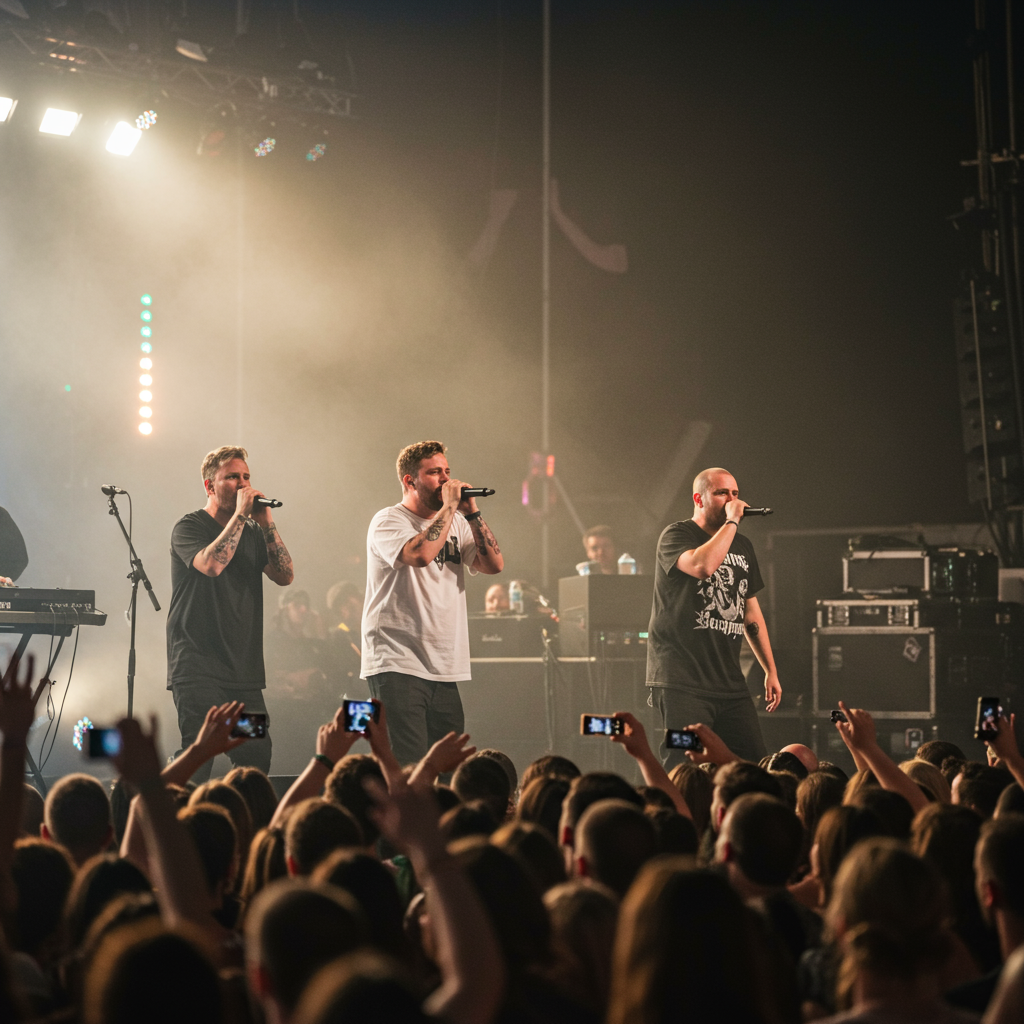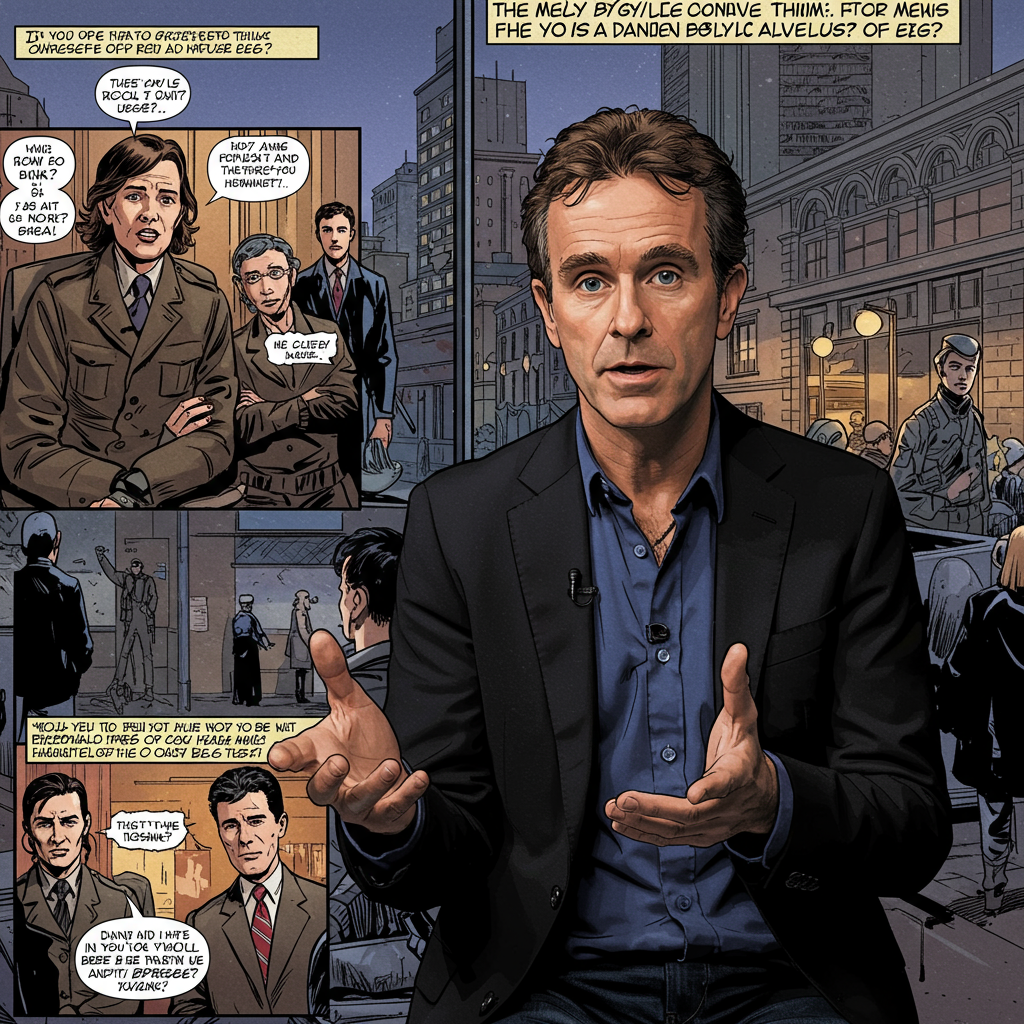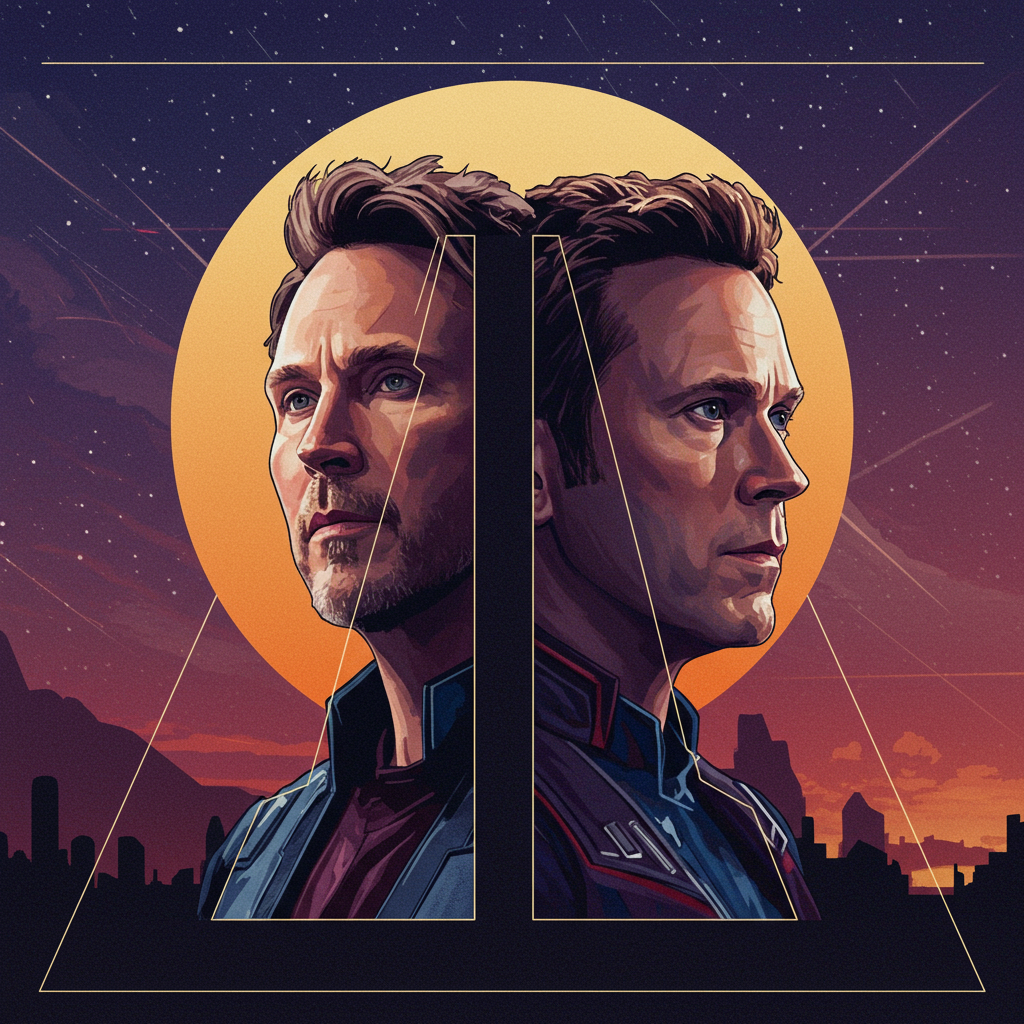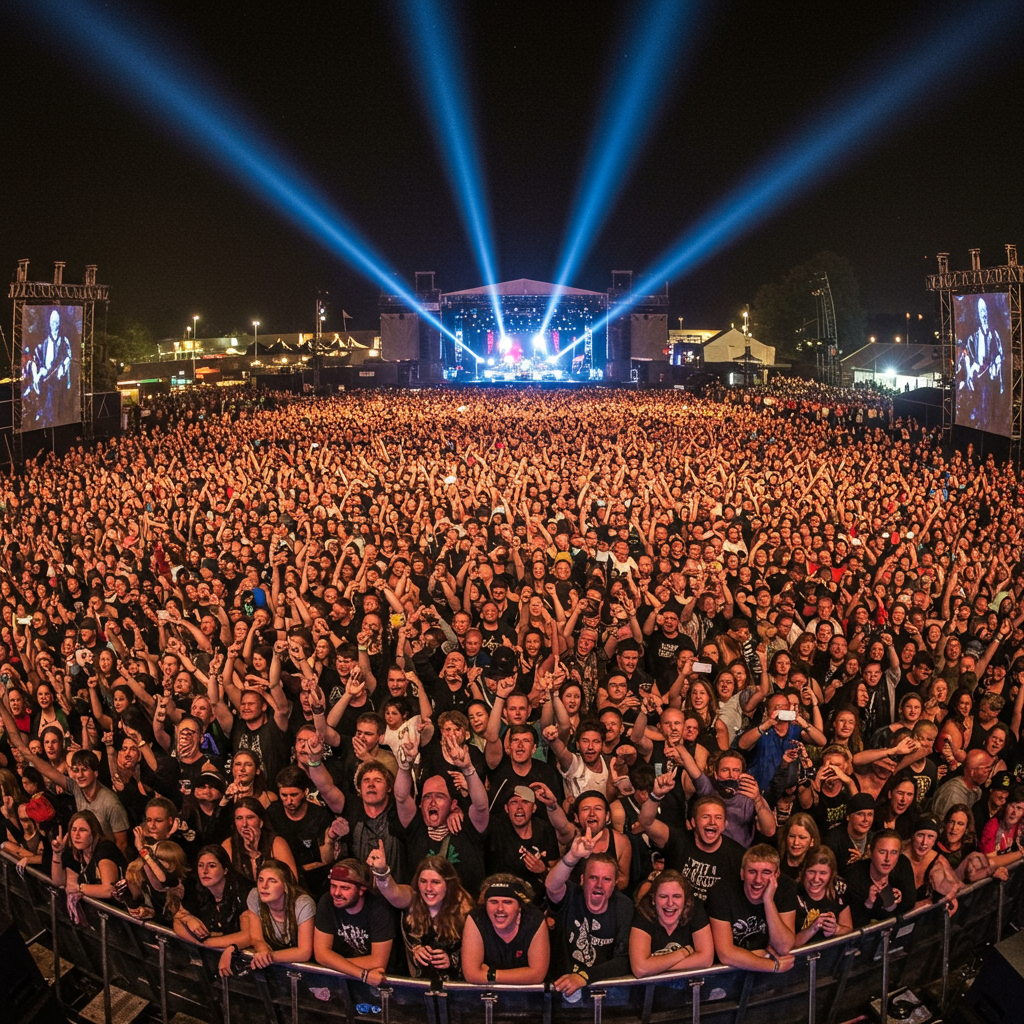Belfast rap trio Kneecap delivered one of the most talked-about performances at this year’s glastonbury Festival, captivating a massive crowd at the West Holts stage. their highly-charged set wasn’t just about the music; the band used the powerful platform to directly address controversies surrounding them, taking aim at UK political figures and passionately advocating for Palestine. The appearance followed public comments from UK Prime Minister Sir Keir Starmer, who had deemed their presence at the festival “not appropriate,” fueling intense debate and drawing significant media attention.
The Irish-language group has been navigating a turbulent period in the headlines. A central point of contention involves member Liam Óg Ó hAnnaidh, known on stage as Mo Chara. He faces a terrorism charge for allegedly displaying the flag of proscribed terrorist organisation Hezbollah at a gig last year, an accusation he vehemently denies. This legal situation, coupled with the band’s outspoken political views, set the stage for their controversial and defiant Glastonbury performance.
Defiance on the West Holts Stage
Anticipation for Kneecap’s set was so high that security had to cordon off the West Holts field a full 45 minutes before they were scheduled to appear. Thousands poured in, some drawn by the band’s music, many others by the controversy itself. The crowd, estimated by the band at 30,000, created an electrifying atmosphere, responding to the band’s raucous, rabble-rousing electro-rap with smoke flares and energetic moshing.
From the outset, the political dimension was clear. Mo Chara, wearing a Palestinian keffiyeh, opened the set by declaring to the assembled masses, “Glastonbury, I am a free man!” This statement directly referenced his recent court appearance two weeks prior in London, where he was granted unconditional bail, allowing him to perform at the festival.
Hitting Back at Political Criticism
The band wasted no time in confronting the criticism from UK politicians. Addressing the crowd, they specifically mentioned Sir Keir Starmer’s comment that their appearance was inappropriate. “The prime minister of your country, not mine, said he didn’t want us to play,” they pointedly noted. This paved the way for expletive-laden chants against Starmer, led by the band and enthusiastically echoed by the audience. The band later framed their criticism of Starmer within the context of the UK’s support for Israel, linking his comments to the sale of arms.
Bandmate Naoise Ó Cairealláin, known as Móglaí Bap, addressed Mo Chara’s legal predicament directly. He labelled the terrorism charge a “trumped up terrorism charge,” drawing a parallel to what he described as historical “miscarriage of justice for an Irish person in the British justice system.” This comparison resonated strongly with the crowd, evoking a powerful reaction. Móglaí Bap urged fans to attend Mo Chara’s next court hearing scheduled for August at Westminster Magistrates’ Court in London, asking for their support.
Vocal Support for Palestine
Beyond their legal challenges and political spats with Westminster, Kneecap used their significant platform to voice unwavering support for Palestine. Palestinian flags were visibly interspersed throughout the audience, mingling with traditional festival banners.
“We understand colonialism and we understand how important it is to support each other internationally,” Mo Chara stated, articulating the band’s perspective. Accusing Israel of genocide – an allegation Israel strongly denies – he led the audience in resonant chants of “free, free Palestine.”
The band also publicly backed Palestine Action, a protest group that the UK government is considering proscribing under anti-terror laws. A band member wore a t-shirt on stage emblazened with “We are all Palestine Action.” The band’s social media had previously emphasized that their story was secondary to the situation in Gaza, framing the controversy around them as a distraction.
Defending Artistic Expression at Festivals
The decision to keep Kneecap on the Glastonbury lineup despite the political pressure was defended by the festival’s organizers, Sir Michael Eavis and his daughter Emily Eavis, who runs the event. Emily Eavis emphasized that Glastonbury serves as a vital platform for artists from diverse backgrounds globally, stating clearly that “everyone is welcome here.”
Sir Michael Eavis added his perspective in the festival’s on-site newspaper, suggesting that individuals who disagree with the political stance of the event are free to attend elsewhere. Kneecap publicly expressed their gratitude to the Eavis family on stage, acknowledging the pressure they faced and praising their resolve. They stated that they “love the English people just not the English government,” distinguishing between the populace and political leadership.
The BBC’s Broadcasting Dilemma
Kneecap’s performance presented a challenge for the BBC, Glastonbury’s broadcast partner. The corporation had to navigate its obligations regarding impartiality and potentially offensive language while deciding how to cover the set.
Unlike many main stage performances, Kneecap’s set was not live-streamed. A BBC spokesperson confirmed that while they don’t ban artists, their plans ensure programming adheres to editorial guidelines. They intended to make edited highlights of Kneecap’s performance available on demand later via digital platforms, alongside over 90 other sets. This decision drew commentary and criticism, with some, including Conservative politicians, arguing a publicly funded body should not platform the band due to the controversies. Mo Chara wryly noted the abundance of Palestinian flags in the crowd during their set, joking that the BBC editor tasked with preparing highlights would have a difficult job.
The band’s rise, partly fueled by a semi-autobiographical film starring Michael Fassbender and a high-profile appearance at Coachella where they also displayed politically charged messages, positioned them firmly in the spotlight leading up to Glastonbury. The controversy surrounding the alleged Hezbollah flag incident intensified after the Coachella appearance, becoming a focal point for both their critics and supporters.
Ultimately, Kneecap’s Glastonbury set transcended a typical music performance. It became a highly visible manifestation of political dissent, legal battles, and the ongoing debate surrounding the boundaries of artistic expression and freedom of speech at major cultural events. The massive crowd turnout demonstrated significant public engagement with the issues the band champions, solidifying their status as a potent voice in contemporary Irish music and political commentary.
Frequently Asked Questions
What controversies surrounded Kneecap’s Glastonbury performance?
Kneecap’s set at Glastonbury occurred amidst several controversies. Firstly, band member Mo Chara faces a terrorism charge related to allegedly displaying a Hezbollah flag at a past gig, which he denies. Secondly, UK Prime Minister Keir Starmer publicly stated the band’s appearance was “not appropriate.” Additionally, the band is known for its strong pro-Palestine stance and criticism of the UK government, which they vocalized during the set, including chants against Starmer and support for Palestine Action.
Where can I find highlights or recordings of Kneecap’s Glastonbury performance?
The BBC did not live stream Kneecap’s set at Glastonbury due to the controversies and potential for offensive language. However, the BBC stated its intention to make edited highlights of the performance available on demand later on their digital platforms, such as BBC iPlayer. This allows viewers to watch parts of the set after it concluded, ensuring the content meets the broadcaster’s editorial guidelines.
Should artists like Kneecap be allowed to make political statements at festivals like Glastonbury?
The debate around artists making political statements at festivals like Glastonbury is complex. Kneecap’s case highlights this, with UK politicians like Keir Starmer and Lisa Nandy arguing it was inappropriate given the band’s legal situation and controversial statements. Conversely, Glastonbury organizers Michael and Emily Eavis defended the decision, viewing the festival as a platform for diverse artistic and political expression. Supporters argue that using music and public platforms to address important social and political issues is a fundamental aspect of artistic freedom and protest.




